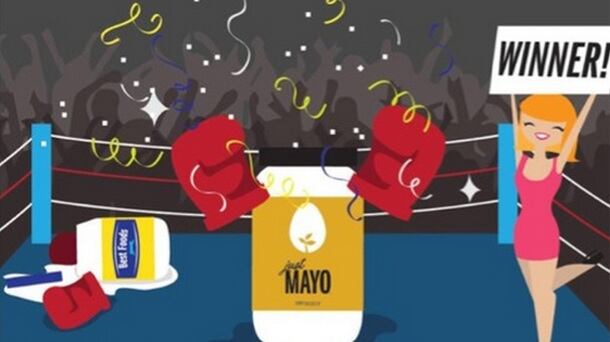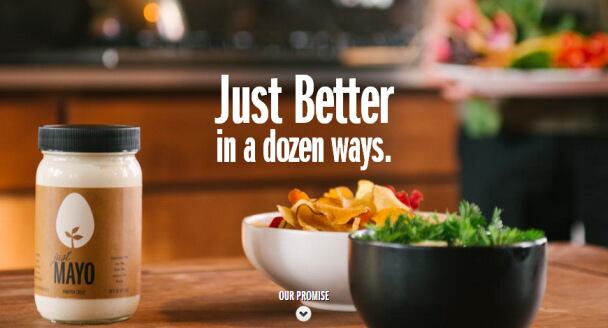In other words, this case - click HERE - is not about whether Just Mayo is a better, kinder, or greener spread - or even if there has been a technical breach of the standard of identity for mayonnaise (click HERE) - but whether most consumers would assume that Just Mayo is mayonnaise, and that mayonnaise contains eggs.
Kim Landsman: ‘Margarine may be better for you and the environment than butter, but that doesn’t mean you can call it butter.’
Kim Landsman, trademark and intellectual property litigation partner at Golenbock Eiseman Assor Bell and Peskoe LLP, noted that Unilever is alleging violations of the Lanham Act, which covers unfair competition.
And as the debate in the Supreme Court over the POM v Coke case recently highlighted, false advertising claims under the Lanham Act are not necessarily determined by whether or not a company is complying with the letter of the relevant piece of food labeling regulation, but whether consumers are being deceived, Landsman told FoodNavigator-USA.
“If the FDA definition does not govern the issue of what is mayonnaise, then both sides will have to prove what consumers believe. Do consumers associate mayonnaise with eggs or do they think of it as just something you put in tuna or egg salad to hold it together? If the FDA labeling regulations and dictionary definitions do not legally establish the definition of mayonnaise and therefore the literal falsity of the product’s 'Just Mayo' name, then both sides will have to submit competing consumer perception surveys.
“Does the Just Mayo label with what looks like an egg with a pea shoot in it create the impression that the product has eggs? This may also require consumer perception surveys if the court is unwilling to conclude as a matter of law that the label communicates that the product has eggs.”
For Hampton Creek, defending this lawsuit won’t be cheap, he added, noting that its initial strategy of hoping that all the bad PR this case has generated for Unilever would make it back down does not appear to have worked.
“I'd be very interested to hear more about the legal advice they had when they first came up with the brand name (though that will probably not be disclosed); it was certainly a risky strategy. To defend this, they will have to come up with at least one consumer survey and they are up against a very well-financed plaintiff.”

The issue is not whether Just Mayo is more ethical or healthy, it is about truth in advertising
He added: “The issue is not, contrary to Hampton Creek’s founder, ‘food’s impact on environment and health.’ It is truth in advertising. The issue in advertising law is not which product is better for the environment or personal health, but whether Hampton Creek has made a false representation about the nature of its product.
“Margarine may be better for you and the environment than butter, but that doesn’t mean you can call it butter.”
As to whether spending a fortune defending its brand name was a good use of resources for Hampton Creek at this early stage of its development, much depended on the strategic significance of the Just Mayo brand to the overall business, he said (Hampton Creek has other retail products, and is also building a business to supply plant-based ingredients to other food manufacturers on an industrial scale).
“They are going to need significant resources.”
Bruce Silverglade: Would a ‘reasonable consumer’ be confused by Just Mayo?
Bruce Silverglade, principal at law firm Olsson Frank Weeda Terman Matz PC in Washington DC, added: “When the PR charges and marketing hype are taken out of the equation, the legal issue before the court will be whether a product called ‘Just Mayo’ misleads consumers into thinking it contains the standard ingredients in mayonnaise, or whether this is merely a case like the one involving ‘Crunchberries’ cereal* where a court found that reasonable consumers would not believe that the product contained real fruit.”
But he added: “Hampton Creek may be known as an egg-free company, but putting the image of an egg on the front label of Just Mayo and advertising the product as ‘outrageously delicious mayonnaise’ will not help its case in court.”

David L. Ter Molen: Are Whole Foods consumers more likely to know that Just Mayo is egg-free?
David L. Ter Molen, a partner in the Chicago offices of law firm Freeborn & Peters LLP, told us: “This case will likely boil down to the jury question of whether the 'Just Mayo' label and associated marketing includes one or more false or misleading statements of fact that actually deceived or has the tendency to deceive a substantial segment of consumers and influence their purchasing decisions.
“This inquiry is context specific and Hampton Creek will likely take the position that reasonable consumers at stores like Whole Foods recognize the product is egg-free and, indeed, purchase the product for that very reason. Unilever will likely argue that the product is broadly available outside of specialty retailers... and is sold at Target and Walmart, such that the relevant consumers are not a sub-category of grocery shoppers.
“If Unilever can obtain evidence during discovery that consumers have actually been misled by the marketing of the Just Mayo brand, then it will have an advantage as the case moves forward.”
Corporate bullying or is Hampton Creek expecting to play by different rules?
Comments posted on social media about the case reflect a range of opinions, with many consumers and smaller food companies lambasting Unilever for 'corporate bullying', but some food industry execs arguing that Hampton Creek seemed to think it could play by different rules than everyone else.

One commentator on the FoodNavigator-USA website added: "Miracle Whip didn't meet the standard of identity for mayonnaise so they labeled it differently. Hampton Foods should do the same."
However, one attorney, who asked to remain anonymous, told FoodNavigator-USA that Unilever too, wanted to have it both ways, adding that one of Unilever's key products is I Can’t Believe It’s Not Butter, where Unilever is "taking advantage of consumer understanding of what 'butter' is in order to claim that its product is the functional equivalent of 'butter".
He added: "Unilever's argument is that no reasonable consumer would believe that a product whose trade name explicitly says it is not butter is actually butter. How is that any different from Just Mayo, which Hampton Creek will argue is understood by reasonable consumers not to be 'mayonnaise' while at the same time claiming that it is the 'functional' equivalent. What’s good for the goose is good for the gander. People in glass houses shouldn’t throw stones."
Click HERE to get full details about the case (Conopco Inc (d.b.a. Unilever) vs Hampton Creek, Inc, 14-cv-06856), plus comments from Unilever and Hampton Creek Foods.
*In Sugawara v. Pepsico, Inc. 08-cv-01335 the plaintiffs said consumers would assume that PepsiCo’s ‘Cap'n Crunch Crunch berries’ cereal contained real fruit, but the Court said reasonable consumers would not make that assumption.
